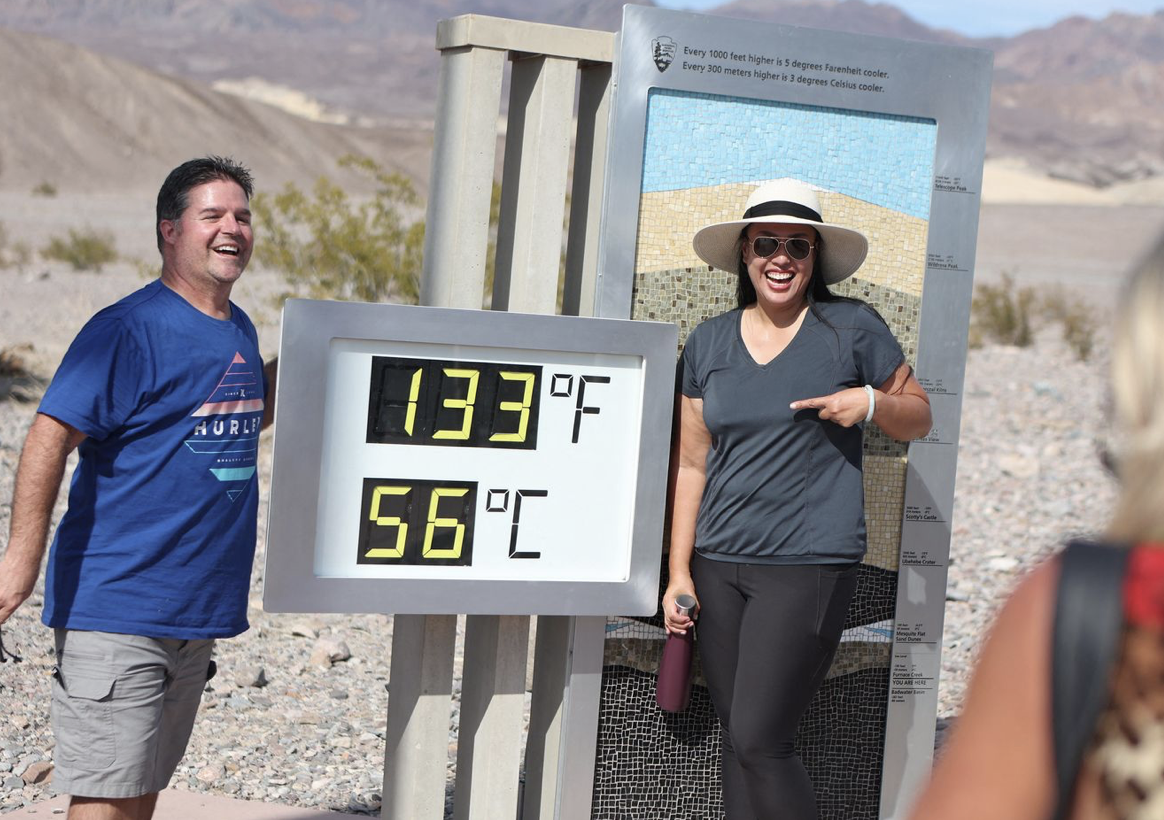Alarmist stories about the weather, not the warm air itself, are behind the left’s anxiety and dread.
The media wants you to know it’s hot outside. “ ‘Heat health emergency’: Nearly half the US at risk,” CNN proclaimed last week as temperatures climbed above 90 degrees in much of the country.
If heat waves were as deadly as the press proclaims, Homo sapiens couldn’t have survived thousands of years without air conditioning. Yet here were are. Humans have shown remarkable resilience and adaptation—at least until modern times, when half of society lost its cool over climate change.
“Extreme Temperatures Are Hurting Our Mental Health,” a recent Bloomberg headline warns. Apparently every social problem under the sun is now attributable to climate change. But it’s alarmist stories about bad weather that are fueling mental derangements worthy of the DSM-5—not the warm summer air itself.
The Bloomberg article cites a July meta-analysis in the medical journal Lancet, which found a tenuous link between higher temperatures and suicides and mental illness. But the study deems the collective evidence of “low certainty” owing to inconsistent study findings, methodologies, measured variables and definitions. The authors also note that “climate change might not necessarily increase mental health issues because people might adapt over time, meaning that higher temperatures could become normal and not be experienced as anomalous or extreme.”
Well, yes. Before the media began reporting on putative temperature records—the scientific evidence for which is also weak—heat waves were treated as a normal part of summer. Uncomfortable, but figuratively nothing to sweat about.
Yet according to a World Health Organization report last year, the very “awareness of climate change and extreme weather events and their impacts” may lead to a host of ills, including strained social relationships, anxiety, depression, intimate-partner violence, helplessness, suicidal behavior and alcohol and substance abuse.
A study in 2021 of 16- to 25-year-olds in 10 countries including the U.S. reported that 59% were very or extremely worried about climate change, and 84% were at least moderately worried. Forty-five percent claimed they were so worried that they struggled to function on a daily basis, the definition of an anxiety disorder.
“First and foremost, it is imperative that adults understand that youth climate anxiety (also referred to as eco-anxiety, solastalgia, eco-guilt or ecological grief) is an emotionally and cognitively functional response to real existential threats,” a May 10 editorial in the journal Nature explained. “Although feelings of powerlessness, grief and fear can be profoundly disruptive—particularly for young people unaccustomed to the depth and complexity of such feelings—it is important to acknowledge that this response is a rational one.”
These anxieties are no more rational than the threats from climate change are existential. A more apt term for such fear is climate hypochondria.
The New Yorker magazine earlier this month published a 4,400-word piece titled “What to Do With Climate Emotions” by Jia Tolentino, a woman in the throes of such neurosis. “It may be impossible to seriously consider the reality of climate change for longer than ninety seconds without feeling depressed, angry, guilty, grief-stricken, or simply insane,” Ms. Tolentino writes.
“A couple of years ago, reading a climate report on my phone in the early hours of the morning, I went into a standard-issue emotional spiral thinking about it all,” she recalls. “We had also recently had a baby, whose carbon footprint likely already exceeded that of entire villages in Burundi. I was playing whack-a-mole with my consumer desires.”
Ms. Tolentino goes on to describe how climate therapists can help patients cope. “The goal is not to resolve the intrusive feeling and put it away” but, as one therapist advises her, “to aim for a middle ground of sustainable distress.” Even the climate left’s despair must be “sustainable.”
It isn’t difficult to notice that today’s snowflakes consider hot weather aberrant, similar to how they perceive normal feelings such as anxiety or sadness. But there’s nothing normal about climate anxiety, despite the left’s claims to the contrary.
Progressives may even use climate change to displace their other anxieties—for instance, about having children. A mental-health reporter for Vox recently wrote about climate stress, and how “some people even grapple with the existential question of whether to have children because of the human toll on the planet’s resources.”
Displacement is a maladaptive mechanism by which people redirect negative emotions from one thing to another. Ms. Tolentino relates how one patient she interviewed realized through deep reflection that “he’d sometimes used climate anxiety as a container for his own, more intimate problems.”
Advertisement – Scroll to Continue
Climate hypochondriacs deserve to be treated with compassion, much like anyone who suffers from mental illness. They shouldn’t, however, expect everyone else to enable their neuroses.
To see this article in its entirety and to subscribe to others like it, please choose to read more.
Source: Climate Change Obsession Is a Real Mental Disorder – WSJ
 Listen Online
Listen Online Watch Online
Watch Online Find a Station in Your Area
Find a Station in Your Area









 Listen Now
Listen Now Watch Online
Watch Online
